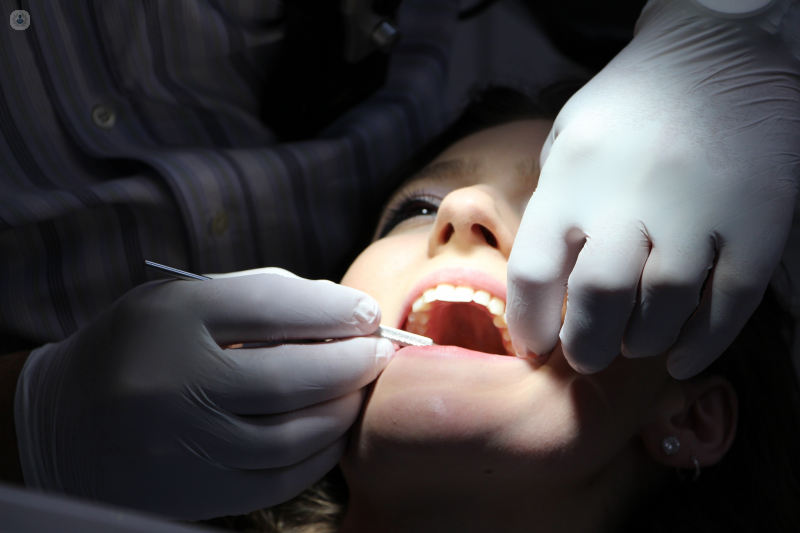Wisdom tooth extraction is a common dental procedure that many individuals undergo during their adult years. While this surgery can provide relief from pain and discomfort caused by impacted wisdom teeth, it is not without its potential complications. One of the most concerning complications is the risk of infection following the extraction. In this article, we will explore the topic of wisdom tooth extraction infection and provide valuable information on finding an adult dentist near you to address any post-surgery concerns.
Understanding Wisdom Tooth Extraction
Wisdom tooth extraction is performed when the third set of molars, known as wisdom teeth, do not have enough space to erupt properly or grow in at an incorrect angle. These issues can lead to pain, swelling, and infection, making extraction necessary. Dentists typically recommend extracting wisdom teeth during early adulthood to prevent these problems.
However, even when the procedure is done correctly, there is a risk of infection afterward. This risk can be influenced by various factors, including the patient’s oral hygiene, the complexity of the extraction, and the dentist’s skill. Infections can occur in the extraction site, and recognizing the signs and symptoms is crucial for timely treatment.
Signs And Symptoms Of Wisdom Tooth Extraction Infection
- Pain: Mild to severe pain at the extraction site is one of the first signs of infection. This pain may persist or worsen after the initial recovery period.
- Swelling: Swelling around the extraction site is another common symptom. It may be accompanied by redness or warmth in the affected area.
- Fever: An elevated body temperature or fever may indicate an infection. It’s essential to monitor your temperature after the surgery.
- Bad Breath: Persistent bad breath, even after proper oral hygiene, can be a sign of infection. This is often accompanied by an unpleasant taste in the mouth.
- Pus Discharge: The presence of pus around the extraction site or in the mouth is a clear indication of infection. Pus is a thick, yellow or greenish fluid that can have a foul odor.
- Difficulty Opening the Mouth: In severe cases, an infection can cause difficulty in opening the mouth fully due to pain and swelling.
- Swollen Lymph Nodes: Swelling of the lymph nodes in the neck or under the jaw may be a sign that the infection is spreading.
- Chronic Fatigue: Feeling unusually tired or weak can be a symptom of a systemic infection resulting from the wisdom tooth extraction site.
Treatment Of Wisdom Tooth Extraction Infection
If you suspect you have an infection following wisdom tooth extraction, it is crucial to seek prompt dental care. Dentists will typically prescribe antibiotics to treat the infection. In some cases, they may need to drain any abscess or pus present at the extraction site.
Maintaining excellent oral hygiene during the recovery period is essential to prevent and manage infections. This includes gently rinsing your mouth with warm saltwater and avoiding tobacco, alcohol, and hard or crunchy foods that can irritate the surgical site.
Finding An Adult Dentist Near Me
Now that we’ve discussed the importance of recognizing and addressing wisdom tooth extraction infections, let’s explore how to find an adult dentist near you who can provide the necessary care.
- Ask for Recommendations: Start by asking family, friends, or coworkers for recommendations. Personal experiences and word-of-mouth referrals can be invaluable in finding a reliable dentist.
- Check Online Reviews: Use online review platforms such as Google, Yelp, or Healthgrades to read reviews from patients who have visited local dentists. Pay attention to feedback related to wisdom tooth extractions and infection treatment.
- Consult Your General Dentist: If you have a regular dentist, they can often refer you to a specialist or an oral surgeon for wisdom tooth extraction. They may also recommend dentists known for their expertise in handling such procedures.
- Insurance Provider: Contact your dental insurance provider to get a list of in-network dentists in your area. This can help you find a dentist who accepts your insurance plan, making dental care more affordable.
- Dental Associations: Consult the website of your state or local dental association. They often have directories of licensed dentists in your area, along with their specialties.
- Online Search: Conduct a simple online search using the keywords “adult dentist near me.” This will provide you with a list of local dentists and their contact information.
- Telehealth Services: In some cases, telehealth services can connect you with a dentist for an initial consultation. While this may not replace an in-person visit, it can help you determine the severity of your issue and whether you need immediate treatment.
Conclusion
Wisdom tooth extraction infections are a potential complication that requires prompt attention. Being aware of the signs and symptoms is crucial for early detection and treatment. If you ever find yourself in need of dental care following wisdom tooth extraction, use the methods mentioned above to find an adult dentist near you. Remember that seeking timely treatment is essential for a successful recovery and overall oral health.





